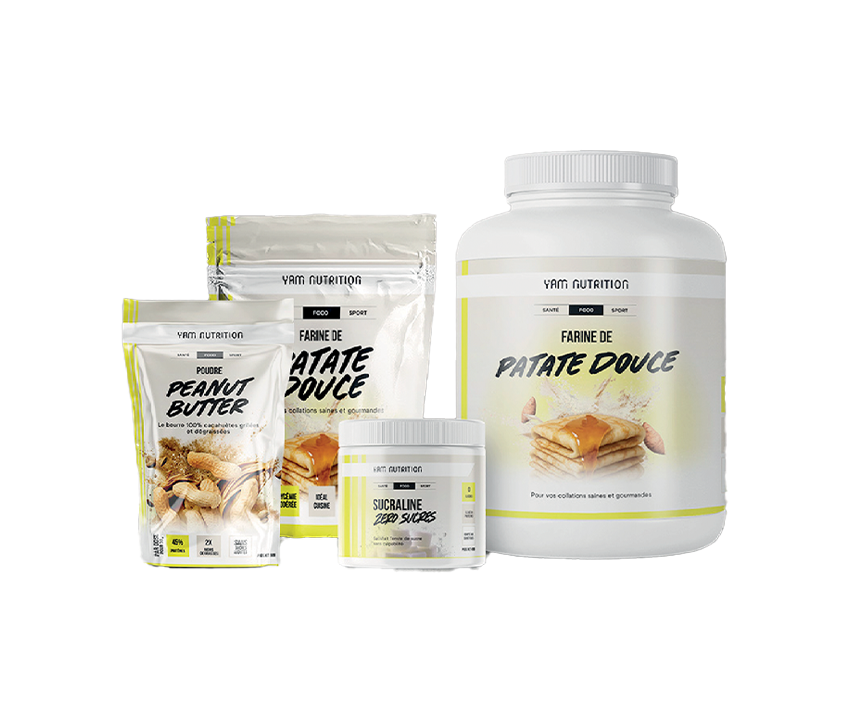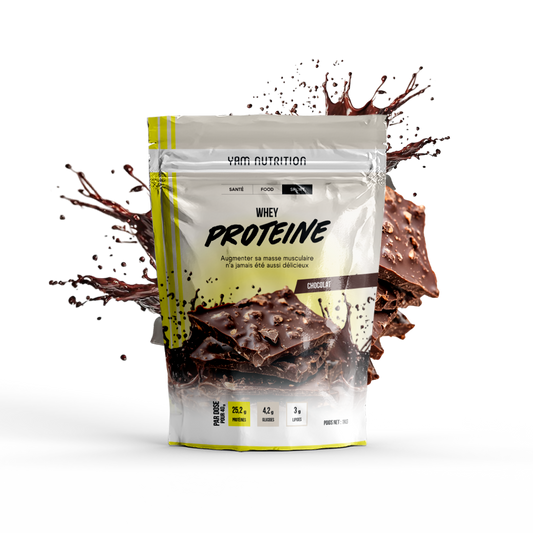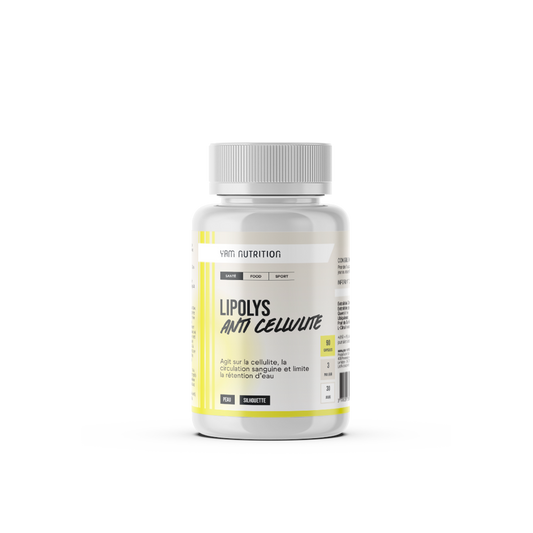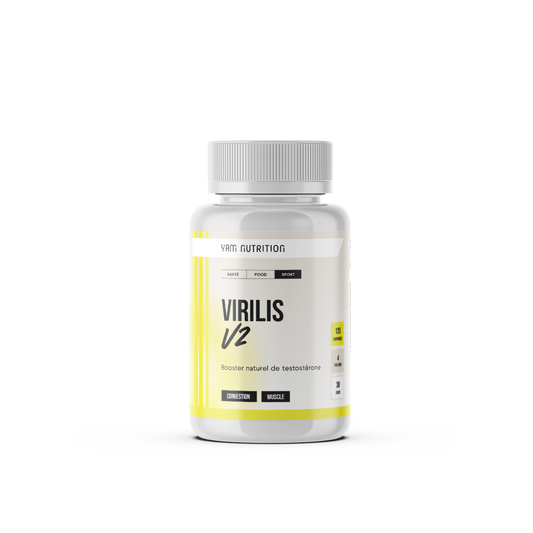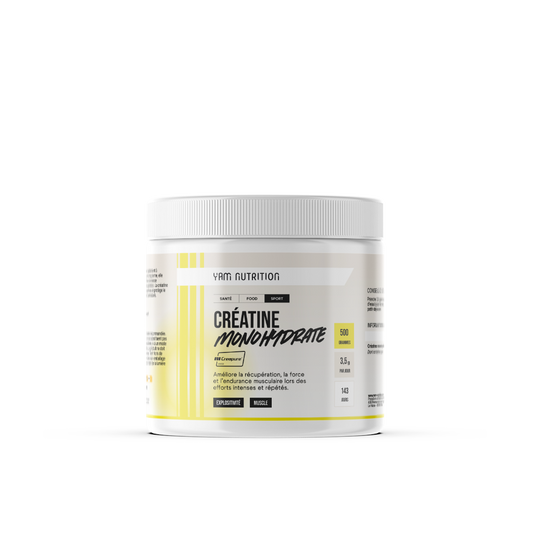How long should I take whey?

Sommaire
- The sports nutrition market offers many different whey proteins, which one should you choose?
- There are several qualities of whey: concentrate, isolate, hydrolyzed and native
- Whey can be consumed for as long as you need it nutritionally.
- Take whey according to your fitness goals…
- Define a nutritional strategy for your protein intake over time...
There whey protein Whey protein powder is one of the best-selling dietary supplements on the sports nutrition market. With a particularly high nutritional value compared to other types of protein, whey has been a favorite among bodybuilders for almost 30 years. Easily assimilated, it provides a high amount of essential amino acids and BCAAs in record time. It takes less than an hour for 30 grams of whey to be fully absorbed by the body. Taken before or immediately after training, whey powder is a perfect contribution to the daily protein intake of strength athletes. Practical and easy to prepare, whey allows you to enjoy a good protein shake with few calories and even less fat.
Building muscle mass has never been so delicious The natural testosterone booster Improves strength, power and muscular endurance during intense and repeated efforts
Whey Protein
Sale price
From 37,90 €
Virilis V2
29,90 €
Sale price
29,90 €
Creatine Monohydrate Creapure®
Sale price
From 34,90 €
The sports nutrition market offers many different whey proteins, which one should you choose ?
As you may have noticed, there are a large number of different whey protein products on the sports nutrition market. In fact, it's not always easy to choose a protein powder that's right for your nutritional needs. If you're an athlete or on a weight loss diet, supplementing with protein could help you achieve your goals. These include: whey concentrate or an isolate (whey isolate). The difference between the two will be the quality of the protein filtration. The concentrate will benefit from simpler filtration of the whey, however, allowing focus 70 to 75% of the protein comes from the food source, i.e. milk. A dried and prepared liver, concentrated whey comes in the form of a very fine protein powder and is flavored with different flavors.
There are several qualities of whey: concentrate, isolate, hydrolyzed and native
Further filtration, obtained from finer filters, with repeated filtration, allows to obtain an isolate with a concentration varying from 80 to 90% of protein. This exceptional protein rate, however, comes at a higher price than the concentrate. That being said, these are two exceptional proteins in terms of nutritional quality. Their richness in essential amino acids, in BCAA , leucine or arginine is generally superior to most protein powders on the market, especially whey isolate.
Hydrolyzed whey protein is also available on the sports nutrition market. It is simply a concentrate or isolate of whey pre-digested. This means that the whey peptides have been partially broken down into small peptides and free amino acids by enzymatic hydrolysis. This process helps accelerate the assimilation of the protein . Naturally, this type of whey is even more expensive to purchase. Finally, native whey comes from milk specifically used for the production of whey concentrate or isolate. Native whey generally has slightly higher leucine and cysteine levels than non-native whey.
Whey can be consumed for as long as you need it nutritionally.
Whey powder, concentrated or isolate, is a food supplement but it is above all a functional food, that is to say that it provides a certain amount of additional protein in pure form in the diet of an athletic or sedentary individual. In other words, if you take a 30 gram shake of whey after training or in the afternoon, this protein shake will contribute to your daily intake of pure protein, without the addition of additional carbohydrates or fats. If you are doing bodybuilding, whey is interesting because it only provides you with protein that contributes to the muscle growth as well as reducing catabolism after intense training. Naturally, the foods you eat every day also contain carbohydrates and fats, even if they provide protein. In contrast, protein powders like whey will supplement your dietary protein intake without adding unnecessary calories, fat, or carbohydrates.
Take whey according to your fitness goals…
Whey contributes to your daily protein intake, but it depends on your fitness goals. If you're looking to gain muscle, whey is perfect. To help you dry out, lose fat while maintaining muscle mass, whey is a valuable ally. For gaining mass, it is not really the best protein because it is low in calories and too quickly absorbed to stimulate muscle growth over time. Naturally, whey powder can be taken for as long as you want, like any high-quality functional food. However, you can perfectly consider consuming your whey according to your sporting goals. All you have to do is define the duration for which you plan to gain muscle, bulk up or cut...
Define a nutritional strategy for your protein intake over time...
Most bodybuilders go through phases of mass gain , cutting and muscle definition or periods where they are looking to gain muscle while avoiding storing body fat. While whey is not recommended for mass gain, it can still be considered if you prefer to take a good protein after training rather than a gainer. If your diet is high in calories, whey could possibly be considered in this case. Once you have determined the duration of each training period, you will know for how long you will take your whey.
In general, lean muscle gain can be followed for an average of 8 to 16 weeks. As for cutting, 12 to 16 weeks is a generally observed duration. Similarly, whey Whey protein powder is an excellent protein to take when it comes to weight loss, especially for sedentary people who want to enjoy a high-protein, calorie-controlled diet. Generally speaking, whey contributes to long-term muscle building. After an intense weight training workout, recovery can last up to 3 days, or even five. From there, athletes should take whey protein regularly, both on training and rest days.
Eric MALLET
Spécialiste en Nutrition Sportive
